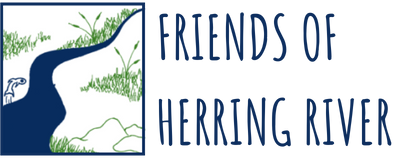Cape Cod National Seashore has awarded a contract for construction of the Mill Creek Water Control Structure (WCS), a crucial infrastructure component of the larger Herring River Restoration Project. The Mill Creek WCS will span the mouth of Mill Creek where it meets the Herring River, just upstream of Chequessett Neck Road bridge in Wellfleet. The Mill Creek WCS is expected to be completed by the spring of 2025, which is around the same time that the primary water control structure at Chequessett Neck Road is projected to be completed.
The Mill Creek WCS is necessary to control tidal input upstream of Mill Creek to protect low-lying properties, which would otherwise be vulnerable to flooding during high tides. The water control structure design contains five adjustable tide gates, each five feet wide, and if warranted, the gates can be managed to protect upstream properties, while still allowing freshwater to drain out of Mill Creek.
“The Mill Creek Water Control Structure is one piece of a complex ecosystem restoration puzzle that scientists have been working towards for the last thirty years,” said Acting Superintendent Leslie Reynolds. “Thanks to the funding partners and generous donors, species like river herring, American eel, and brook trout will once again have the opportunity to spawn upstream as they did for thousands of years.”
Permitting, design and engineering of the structure was supported by the National Park Service, National Oceanic and Atmospheric Administration and the Massachusetts Division of Ecological Restoration. Construction is being supported through $8 million from the Natural Resources Conservation Service and $1.425 million in non-federal matching funds from the National Park Foundation.
“We’re pleased to have partnered with the National Park Service, in addition to other federal, state, and local entities on the Herring River Restoration Project,” said Dan Wright, Massachusetts State Conservationist for the USDA Natural Resources Conservation Service. “By providing funding through the federal Watershed Operations program, we’re able to help restore tidal flow that will benefit the ecosystem as a whole while also working to improve downstream water quality for shell fishing and native species, providing many environmental benefits for the Commonwealth and beyond.”
As part of the project, several new structures will allow the return of natural tidal flows to severely degraded salt marsh habitats, which will improve salinity and oxygen levels in the water, restore a highly productive salt marsh ecosystem, and capture and store significant amounts of carbon. Restoring the estuary will enhance recreation opportunities and connect 11 miles of tidal river and stream habitat to the Gulf of Maine for river herring, American eel, rainbow smelt, sea-run brook trout and other diadromous and estuarine fish species.
“The National Park Foundation is thrilled to support Cape Cod National Seashore’s longtime efforts to restore this important coastal wetland,” said Lise Aangeenbrug, chief program officer at the National Park Foundation. “Restoration efforts like this highlight the important role that national parks play in the broader landscape. Private philanthropy from generous foundation, corporate, and individual donors are essential in helping the national park system restore degraded wetlands ecosystems.”
The Herring River Restoration Project is a collaborative effort that leverages expertise and funding from multiple federal, state, and local entities to help restore 890 acres of intertidal coastal wetlands. For almost two decades, the Town of Wellfleet and the National Park Service have been working in partnership to plan the Herring River Restoration Project, with financial and technical support from the Massachusetts Division of Ecological Restoration, US Department of Agriculture Natural Resource Conservation Service, National Oceanic and Atmospheric Administration, US Fish and Wildlife Service and the local non-profit Friends of Herring River. The project was awarded to Classic Site Solutions, Inc. based in Wilbraham, MA.
To learn more about the Herring River Restoration Project, visit our website.

